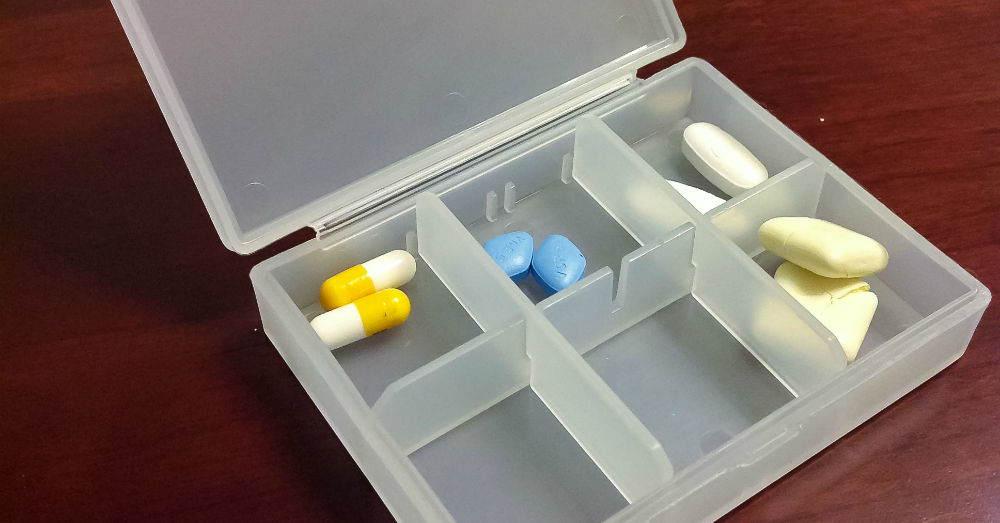Methimazole
- Introduction
- Uses of Methimazole
- How Methimazole Works
- Off-label Uses
- Dosage and Administration
- Composition
- Side Effects
- Common Side Effects
- Warnings and Contraindications
- Interaction with Other Medications
- Careful Administration Considerations
- Important Precautions
- Special Populations: Administration Guidelines
- Overdosage
- Storage
- Handling Precautions
Introduction
Methimazole, an antithyroid medication, has a historical background. It was first discovered in the mid-20th century and brought a significant breakthrough in antithyroid treatments. Over time it has proven its effectiveness by inhibiting the production of thyroid hormones, making it an essential component in treating hyperthyroidism. Methimazole falls under the agent's category and is classified within the thioamide group. This group is well known for its sulfur-containing compounds that play a role in controlling excessive thyroid activity.
Uses of Methimazole
Methimazole is a thionamide antithyroid agent that inhibits the actions of thyroid peroxidase, leading to a reduction in thyroid hormone synthesis and amelioration of hyperthyroidism 1. Methimazole is used to treat hyperthyroidism, especially when it is caused by Graves’ disease 23. It is also effective in treating thyroid-related issues such as thyroiditis and certain types of thyroid cancer 14. Methimazole is used for conditions like multinodular goiter and toxic adenoma 4.
Here are some references that provide more information on Methimazole:
- Methimazole - DrugBank
- Methimazole: Uses, Interactions, Mechanism of Action - DrugBank Online
- Methimazole: MedlinePlus Drug Information
- Methimazole: Side Effects, Dosage, Uses, and More - Healthline
- Hyperthyroidism: Diagnosis and Treatment | AAFP
- Methimazole - StatPearls - NCBI Bookshelf
- Treatment of toxic adenoma and toxic multinodular goiter
- Thyroid Disease: Understanding hypothyroidism and hyperthyroidism - Harvard Health Publishing
How Methimazole Works
How it works: Methimazole works by blocking the enzyme thyroid peroxidase, which reduces the iodination of residues in thyroglobulin. This process helps prevent the synthesis of triiodothyronine (T3) and thyroxine (T4) hormones. Effects on thyroid hormone production: By targeting biochemical processes in the thyroid gland, Methimazole hinders the production and release of thyroid hormones. As a result, it helps to correct imbalances often seen in individuals with hyperthyroidism.
Off-label Uses
Although Methimazole is not approved for all medical conditions, it has been used off-label to treat other disorders unrelated to the thyroid, demonstrating its therapeutic properties 2. Thorough research and controlled clinical trials have revealed the potential of Methimazole in treating conditions such as thyroid eye disease 2. However, it is important to exercise caution when using it off-label and ensure medical supervision.
Here are some references that provide more information on Methimazole:
- Methimazole - DrugBank
- Off-Label Use of Methimazole: A Review - PubMed
- Methimazole: MedlinePlus Drug Information
- Methimazole: Side Effects, Dosage, Uses, and More - Healthline
Dosage and Administration
The recommended doses of Methimazole depend on the severity of the condition. Generally, the initial amount ranges from 5mg to 40mg per day, which can be adjusted based on how it works and the results of biochemical tests. If a person has kidney problems or liver abnormalities, or is taking beta blockers at the time, their dosage may need to be adjusted.
Composition
The main component that gives Methimazole its effectiveness in relieving symptoms of hyperthyroidism is the thionamide compound. This compound is responsible for the potency of the drug. Moreover, Methimazole tablets contain inactive ingredients such as lactose, magnesium stearate, and starch. These ingredients are used to shape and stabilize the drug while also ensuring its bioavailability.

Side Effects
Potential Reactions Overview: any medication, Methimazole, can have side effects. Patients may experience a range of reactions, from skin rashes to more serious blood-related issues. It's important to differentiate between severe side effects. Mild ones, like itchiness or stomach problems, usually improve over time. However, severe consequences such as a decrease in blood cells or liver inflammation require immediate medical attention.
Common Side Effects
Based on data, it has been found that approximately 3% of individuals taking Methimazole experience specific adverse effects, with skin-related issues being the most common. When it comes to managing these side effects, most of them are temporary. It can be addressed through symptom-based treatment. However, if any unexpected symptoms arise, it is essential to report them to ensure the best possible therapeutic results and minimize potential risks.
Warnings and Contraindications
There are some situations when Methimazole should not be used. These include patients who have a hypersensitivity to the drug, individuals with severe liver problems, and those who are breastfeeding. It is also essential for patients with existing hematological disorders, hepatic insufficiencies, or those undergoing radioiodine therapy to exercise caution when using Methimazole. Close monitoring throughout the treatment period is essential in these cases.
Interaction with Other Medications
Everyday drug interactions: When Methimazole is taken together with medications, it can potentially lead to a variety of interactions. Some drugs, such as beta-blockers, anticoagulants, and digitalis glycosides, may have effects when combined with Methimazole. For example, in Warfarin, The anticoagulant effect may be enhanced. Propranolol: Blood concentration may increase. Digoxin: Therapeutic and toxic effects may be amplified. To avoid any interactions, healthcare professionals are advised to take a cautious approach. They should closely monitor the levels of these drugs in the body. Make necessary adjustments to the dosages.
Careful Administration Considerations
Dosage determination depends on factors, including the patient's age, kidney function, the severity of their thyroid condition, and any other medications they may be taking. It is essential to evaluate and monitor hematological and hepatic profiles to ensure optimal outcomes. Additionally, it is crucial to assess effectiveness and watch for any potential adverse reactions.
Important Precautions
When taking this medication, patients are usually advised to avoid foods high in iodine and not to stop the drug suddenly. It is also recommended to moderate alcohol consumption due to the liver toxicity effects. It's essential to be cautious when engaging in activities that require alertness, such as operating machinery or driving, as Methimazole may cause drowsiness.
Special Populations: Administration Guidelines
Information for the Elderly: Elderly patients, due to their reduced kidney function, may require dosage adjustments. It's also important to be aware that they might be more susceptible to the side effects of the medication careful monitoring is necessary. Information for Pregnant Women and Nursing Mothers: Methimazole carries risks of causing birth defects and may pass into breast milk, potentially affecting the newborn. Risks and Safety Profile: There is a possibility of congenital abnormalities, especially if Methimazole is taken during the first trimester of pregnancy. Recommendations and Precautions; Before using Methimazole, an analysis of risks and benefits should be conducted, taking into consideration alternative treatment options. Information for Children: Although Methimazole can be used in patients, the dosage should be adjusted based on their specific physiological characteristics. Guidelines for dosing in children recommend starting with doses and increasing gradually based on how well it works. Safety Profile in Young Patients: There is a risk of skin reactions in younger patients, so close monitoring is required.
Overdosage
Symptoms and how it appears; When someone takes much of it they may experience feelings of nausea, drowsiness, discomfort in the upper abdomen, and in severe cases, a condition called aplastic anemia or agranulocytosis. What to do away and treatments: The first steps to take in case of an overdose are to clean out the stomach through gastric lavage quickly activate charcoal medication, and provide supportive care. These actions are essential for managing overdose situations.
Storage
The best way to preserve Methimazole is to store it in a dry place away from direct sunlight. It is essential to follow the expiration date strictly as the effectiveness of the medication may be compromised after that time, which could make it ineffective or even harmful.

Handling Precautions
It is essential to handle and dispose of methimazole tablets safely. Do not. Break the tablets. When getting rid of unused tablets make sure to follow the guidelines in your area to prevent any environmental risks. Clinicians should inform patients about the importance of monitoring, possible side effects, and the need to follow prescribed dosages. Patients should store the tablets safely and away from

























